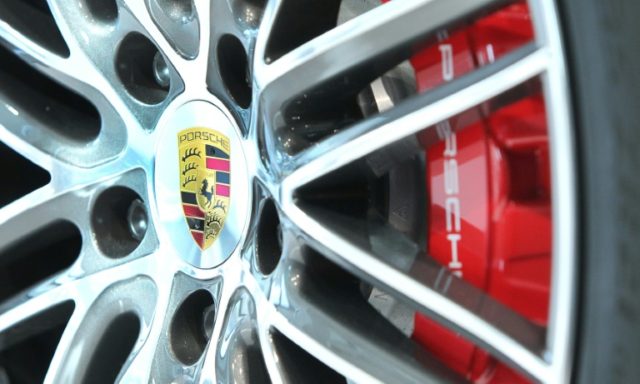Berlin (AFP) – German police have detained a Porsche manager in a probe into the diesel emissions cheating scandal that the luxury car brand’s parent company Volkswagen has struggled to shed.
Porsche chief Oliver Blume “informed the workforce that the prosecutor of Stuttgart has taken a manager into custody”, a spokesman for Porsche told AFP on Friday.
Porsche did not name the suspect, but Germany’s top-selling newspaper Bild and economic weekly Wirtschaftswoche reported that the man being held is Joerg Kerner, an engineer in charge of Porsche’s engine division who was working at Audi when the diesel scandal broke in 2015.
Prosecutors, who also did not identify the suspect, said he had been remanded in custody because of “risk of flight” and that a probe had been opened against him since July last year.
The manager was on the way to work when he received a call from a family member that his home was being raided by police, Bild reported.
He turned around and raced home but his sudden change in destination made investigators think he was attempting to flee, prompting them to take him into custody, Bild reported without citing its sources.
Confirmation of the arrest came two days after German police raided offices of Porsche and Audi as part of a fraud probe against three individuals — two top Porsche executives and a former employee of the luxury carmaker.
The three unnamed individuals are under investigation for suspected fraud and false advertising stemming from the manipulation of exhaust treatment in Porsche’s diesel vehicles.
Both high-end carmakers are owned by Volkswagen, which admitted in 2015 to using cheating software designed to dupe pollution tests in some 11 million diesel cars worldwide, mainly in its own-brand VW cars but also in those made by Audi, Porsche, Skoda and Seat.
– New CEO –
In his letter to Porsche employees, Blume also stressed that “Porsche neither develops nor produces diesel engines or associated software.”
He added therefore that Porsche was not aware of any illegal software installed in the brand’s vehicles.
Engines of Porsche’s diesel vehicles such as the Cayenne are made by Audi.
The raids were the first time Porsche’s offices have been targeted over the diesel emissions cheating controversy, while Audi has already been searched three times over the past year, most recently in February.
A spokeswoman for the Munich prosecutor’s office told DPA news agency that Wednesday’s searches at Audi “had nothing to do” with a separate probe into Audi’s role in the diesel scam.
Porsche’s latest woes came a week after the Volkswagen group replaced its CEO — former Porsche boss Matthias Mueller — in a new bid to turn the page on the “dieselgate” scandal.
Mueller, who led Porsche between 2010 and 2015, took the helm of the VW group in the turbulent days after the scandal broke.
But he too came into prosecutors’ sights as the group plunged into a sea of legal challenges at home and abroad that have already cost the auto giant over 25 billion euros ($31 billion) in fines, buybacks and compensation.
Stuttgart prosecutors said last year they were investigating Mueller over market manipulation, suspecting he failed to share information about the diesel scandal quickly enough with shareholders.
Last Friday, Mueller was replaced as chief executive by VW brand chief Herbert Diess, who has vowed to steer the company out of the crisis by pushing on with much-needed reforms and continuing a shift towards electric cars and sustainable mobility.
The “dieselgate” saga has cast a pall over Germany’s vaunted car industry, with suspicions of emissions manipulation spreading to other carmakers.
Luxury carmaker BMW and Mercedes-owned Daimler have both had their offices raided by investigators searching for evidence of possible cheating.
BMW recalled some 12,000 cars in February after admitting they contained software that allowed the engines to release more harmful emissions on the road than in the lab — but insisted the software was installed by mistake.

COMMENTS
Please let us know if you're having issues with commenting.